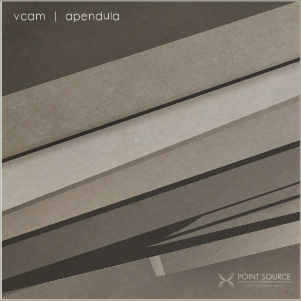
IMPORTANT Records sprouted up around Y2K as both a label and shop, vending its own ambiguous wares on the outskirts of Boston’s North Shore. They have since released an impressive 35 recordings and other items including fan-licious apparel (t-shirts, bags and vinyl slipmats). With a roster that showcases recordings by seminal noise aestheticians
and other sculptors of obscure soundscapes Merzbow, The Hafler Trio,
Muslimgauze, Acid Mothers Temple, Dresden Dolls and Genesis P-Orridge
label maestro John Brien has single-handedly selected some of the finest
names on the obscure edges of the experimental sound atlas. His approach
to work that has no credible pop potential, and that at once defies
categorization, is something we sat down to discuss recently…
::..:::…..:..::….:::::..:::..:::::::……:::…::.:::….::::..:..:::…::…….:::::
::..:::…..:..::….:::::..:::..:::::::……:::…::.:::….::::..:..:::…::…….:::::
TJ Norris / IGLOO: Hey there John! I am unsure how we missed each other all those years, but I grew up not too far from your home in Newburyport and spent my first 35 years in Boston until relocating out here to the west coast three years back. But you are certainly drawing my attention back to those chilly shores. How are things for you these days?
John Brien / IMPORTANT Records: That’s funny as I am constantly thinking about relocating to the warmer shores of Southern California. This last winter was a long one. Not to say that I don’t enjoy many aspects of the winter, but I’d like it if it was about 1 month shorter.
IGLOO: So, the name, Important Records, it’s earnest, it’s real. But I want your take on it. What’s so important after all? In some ways it says to me “Pssst…hey guy, check these out, this is really where it’s at – forget the top 40, the droll AOR, advertising and all. This speaks for itself!” In fact, it reminds me a bit of when I was 15 or 16 years old visiting say, Newbury Comics (when there was only one shop on Newbury Street in Boston) and flipping through old LPs by Throbbing Gristle, Mission of Burma and Nocturnal Emissions wondering how I would slip ’em by my family. Growing up in Boston is a magical thing; you got WZBC’s “No Commercial Potential” (hi Paul and hi Sandy!), RRRecords, The Channel, Spit, Twisted Village and a whole slew of memories of dive bars and sonic transmission. I loved digging through the dust to find the gems under the drek in all the excellent used record shops (Stereo Jacks, Mars…)…where does it all fit in for you? And can you talk about Boston (its live spaces and other haunts and personalities) in any way it’s flavored your way of doing business, etc?
J: The name “important” has a sort of subjective and academic duality to it. I believe that the music we release is “important” in all aspects of the word, but the point wasn’t to say “listen to these records as they are the only records of Importance” but more to celebrate the fact that many of us respond so profoundly to recorded sound and cherish recorded artifacts. It’s hard to have a conversation about records without using the word “Important.” At least it’s hard for me anyways.
I love Boston. I’ve always visited the city to see shows and look for records, but I’m just starting to really connect to it in a more spiritual way as I explore it more deeply. I was working with a Boston band called The Dresden Dolls for a while and singer/pianist Amanda Palmer lives in a part of the city I’ve never really explored. I was going down to visit her every once in a while and driving over there I really started putting the city together in my head. Since then I’ve felt a lot more comfortable driving there and I’ve been going down a lot more.
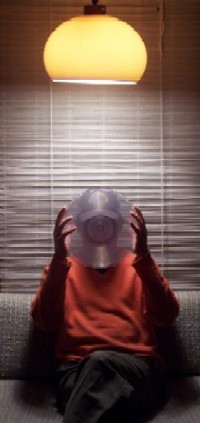
IGLOO: Amanda Palmer! Wasn’t she the 20-foot bride?
J: Yes.
IGLOO: So, I see your second limited EP release from house fave The Hafler Trio – how did that come about? What is your relationship with Andrew McKenzie and what was it like working with him? The packaging reminds me of real art house style, its tangible, toothy, and reflective. Can you talk some about how this all came together and your whole reason behind Important’s idea on releasing limited editions?
J: I was contacted by Andrew and asked to release A Small Child Dreams of Voiding The Plague as part of a series. Obviously, I was quite pleased with the recorded work and the package design. I hope that Andrew and I will continue releasing these limited edition EP’s indefinitely. The series is very inspired and as long as it continues to evolve and maintain such a high level of quality I’d like to keep it alive. Andrew is wonderful to work with.
To talk only about the new Hafler discs on Important would be to tremendously understate this new body of work he’s been producing for a few different labels. I’ve been quite obsessed with both Cleave 9: A Great Openings as well as No More Twain and Andrew’s design for all of this work has been quite breathtaking. I love how packaging can be such a perfect companion to the music.. He’s been creating these astoundingly sacred packages.
Our Hafler discs have been hand printed by Neil Burke @ Monoroid). Neil does a lot of print work in the music world and he does an astounding job. Plus, he’s really into the stuff, which makes it really enjoyable to work with him. He’s also a member of Men’s Recovery Project who I recommend as much as I recommend his print job.
I really like the idea of treating sound artists the way you’d treat a physical artist. I don’t like the idea of criticizing an artist for productivity (Merzbow gets it a lot) and I am dedicated to the idea of treating recorded work, which can be too easily mass produced, as a sacred object worthy of reverence. So, limited editions and/or delicately assembled packaging is part of praising these objects. Ultimately, it’s the ideas embedded in the digital code that matter most, but recorded sound can be a very spiritual thing and I think it needs to be treated as such. Another nice thing about limited editions is that when it’s done, it’s done and you can move on.
IGLOO: Yea, his No More Twain made my Top 10 of 2003 at Brainwashed.com. I’ve been addicted since I first came upon a whole batch of the old material while working at the now defunct Record Hog in Somerville, MA, records like The Master of Money and Kill the King from the early 90s which are now in the process of being re-pressed by Frans de Waard’s Korm Plastics! Your roster has some of the finest practitioners in Japanese noise. Can you say some about this? Is there a sound you are after that you can finger?
J: Important isn’t a noise label and I’m not interested in establishing a label sound. I’m pursuing artists based on how I value their ideas. Whether it’s Kimya Dawson’s anti-folk, Fe-Mail’s sound collage or The Dresden Doll’s punk’ish cabaret, I feel that there’s something very similar happening in each sound. They’re artists moving in their own uniquely important directions. See! There’s that word again.
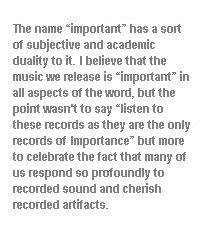
IGLOO: I get ‘ya – LOUD and clear! Do you have any comments about what you are capturing, kind of on the more curatorial end of sound here?
J: I like the idea of me being a curator, of picking these stars out of the sky and hanging them on my wall for everyone to listen to.
IGLOO: Dually noted. Now for the chicken/egg story: Tell me a bit about how Important Records was born. Were you a record shop first or a label?
J: I was the assistant manager at a decent indie shop for a few years. I returned from a trip to Puerto Rico to discover that the manager had been unjustly fired. It wasn’t going to be possible for me to work for anyone else and it was clear that the atmosphere in the store was going to be much more administrative, so I had to leave. I still miss that job terribly. It was an amazing musical library and all of my co-workers had very unique musical interests and we were constantly sharing with one another. I miss that environment. I’m a little lonely here typing behind a screen.
Because I was doing much of the buying for the store I had lots of friends at distributors. So, I started buying from them and began Important as a webstore. I’ve always had to do a lot of sales on eBay to keep money coming in. Ebay does the trick and helps keep things running, but it’s a pretty terrible job. The label began when the webstore went up and I had the good fortune of having our first release be from Daniel Johnson who is one of my personal heroes.
IGLOO: Tell me a bit about yourself, are you a musician or artist? What did you do before Important and what might you do after?
J: Before Important I was running that record shop and attending college. I’ve always been musically obsessed, but never intended to get involved in the industry. I have an English teaching degree, which I may or may not use. In fact, I think that it may have been substitute teaching that prompted the creation of Important. If I ever go back to it I’d like to teach 2nd or 3rd grade, or College level. I’d like to teach somewhere where the kids are engaged. High school isn’t usually that sort of environment. I’m not thinking about after Important, but should there be an after – there are many things I’d like to do. The last thing I want to do is end Important, so I’ll be keeping at it for quite some time.
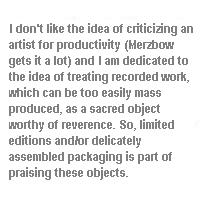
I’ve been obsessed with the arts since a young age. Literature, painting, sound, and architecture are my main obsessions. I’ve been a member of the same musical duo since 6th grade with my cousin Alix. He’s tremendously imaginative and quite virtuosic where as I’m terribly influenced yet inept technically. Maybe he’d tell you the opposite. I don’t know. I think all people are artists and musicians; it’s just that people pursue that aspect of themselves to various degrees.
IGLOO: Well, I don’t know, I sort of agree and disagree – some people who “think” they are artists really should try their hand at cooking school, and others who struggle so hard to keep a roof over there head and never have creative time are some of our best conceptual thinkers…
Masami Akita –most prolific man in music ever? Does a true discography exist anywhere? Tell me anything you care about the man, the myth…
J: As stated above, I think it’s appropriate to encourage prolific artists and not discourage. Every Merzbow record is another step towards his final body of work, his complete thought, and I think that’s so crucial. With artists that I’m particularly fond of I want to hear as much of their work as they deem worthy of release. CDs cost much less than a painting and have the same intellectual and emotional value. Seems like quite a deal to me.
Masami is a very kind person and very easy to work with. I’m a little intimidated by him, so I keep a little bit of a distance, but it’s an honor and a pleasure to work with him.
IGLOO: OK. Well – do you want to say anything about Last of the Analog Sessions? I haven’t had the chance to hear it yet – but am curious how it came about. There’s a romanticism about process, especially when someone goes from a more acoustic/analogue process to carrying their entire studio in a duffle bag (as a photographer who made a similar transition about four years ago I’m feelin’ it) – can you touch upon this at all? Are these “found recordings” and when were they recorded?
J: The records included in Last Of The Analog Sessions were recorded between 1997-99. They were finished and prepared for release, but sat unreleased until Masami and I had the idea to release them as this box set. Like every other record I’ve been fortunate enough to do, I feel very honored to have been able to unearth these recordings and bring them out.
Obviously the process is the theme of the box set being that it’s the Last of The Analog Sessions, but the records really stand up on their own. There’s a particular warmth and character unique to his analog era recordings. Also, I’m obsessed with analog equipment so it was quite a project for me.
IGLOO: What type of equipment…gizmos?
J: I’m more of an analog gear guy, amps, synthesizers, recording equipment, pedals amps etc… If i have to buy something I prefer it to be analog.
IGLOO: Here goes my collective rave (sans rant). Since I moved outta town back in 2001 Boston launched the flight that devastated the world on 9/11 (my mom helped prepare the meals on that cataclysmic AA flight), after what seemed like an endless lifetime the Big Dig is now almost a superfluous memory, a local Senator will do head-to-head battle for Prez, amazing record cold temps closed schools for the first time in history (not to mention the recent 4″ of rain in an afternoon), the place that put the freedoms of same-sex marriage on the world news report nightly and the city which I dub “the home of racism” has for the first time a larger population of people of color than Caucasians – the city has been through incredible flux and change. How does Important Records keep up with the rocking of the cradle? How is experimental, leftfield music our only hope?
J: Experimental music is a bill in the currency of progressive thought. It’s constantly looking into the future, influenced by the past. It has an undeniable forward momentum. Progressive thought in all of its forms is constantly society’s only hope. Thought, like time, must keep moving into the future or everything stops.
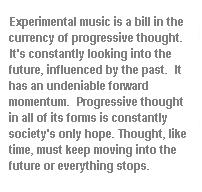
IGLOO: What is cooking in the Important lab that we can expect to be shipped to the limited masses in the near future?
J: In the immediate future people can expect new records from Fe-Mail, Barbez, Makoto Kawabata, more Hafler Trio, Jack Dangers, The Birds, King Missile, Kimya Dawson, Merzbow, Muslimgauze.
The Barbez record is going to be big. They’ve been gaining quite a bit of momentum over the last year and their sound is so sophisticated, precise and modern that it’s going to be hard for anyone to ignore them. Sort of like tossing Satie, Weill and Tom Wait’s Bone Machine album in a bag, shaking it up and then having it sung by a beautiful Russian performance artist with a voice so unique that it can’t be compared –I’m entranced by this group. They’re so modern and yet so old. There’s this stark duality there…very charismatic.
IGLOO: I like the way you describe it, sounds like the feeling I first had when I was introduced to the Velvet Underground! Parting words, glances or abrasive negligence to share?
J: Everyone should go to our website and look at our cats. They’re lovely.
END
::..:::…..:..::….:::::..:::..:::::::……:::…::.:::….::::..:..:::…::…….:::::
::..:::…..:..::….:::::..:::..:::::::……:::…::.:::….::::..:..:::…::…….::::
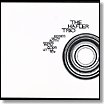
In the second EP to follow-up on where A Small Child Dreams Of Voiding The Plague left off – The Hafler Trio are in fine form, so to speak. In 20 minutes Andrew McKenzie purifies a circular drone up and down a few octaves, aerating its sensory fibers, chilling its bloodline. This captivating track implodes from point zero, creating widespread rings abruptly punctuated by a heart-stopping cough and random live applause. A clock ticks into a brazen beat with its same meter and false start only to undulate into a sniffling atonal stop gap. Here we are left in a hollow tube with only a disconnected phone and recordings of international customer service operators and razor-sharp static. The feedback here rambles and shifts against a tumbling cellulose-like mass – but there is the tiniest of escape routes to take and he is on it. These aren’t the run of the mill “Kisses” you are accustomed to. Containing distorted concoctions of both live actions and studio play, the found sound herein has been arranged with the ultimate meticulousness – glasses wobble, hushed voices speak though the message is not really heard the way originally intended. Silence –and we are in a loft space or other such tall place where people gather with on hard floors with bottles and keys and chatter. An ephemeral lapse in reason, an exercise into the hyper psyche of ambient light beings. Once more into the space mix, the rings of time descend and encircle, then float gently away.
::..:::…..:..::….:::::..:::..:::::::……:::…::.:::….::::..:..:::…::…….:::::
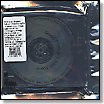
Important Records out of the Boston area’s North Shore unleashes the latest from Throbbing Gristle/Psychic TV impresario Genesis P-Orridge restyling his always-updated image on When I Was Young – a funky cryptic affair. The title cut is hip/trip-hop, chamber music for the lonely hearted. Narrated by possibly Rocky Horror himself, with a groovy back beat and twangy synths aplenty. The sci-fi Theremin meets a vinyl lock-goove and it’s a dark scratch match on “The Mind Is The Key.” Gen’s vocals strike a chord, in a place between memory and mastery. Popped into a mylar wrapper filled with die-cut lil black stars this may be after-party music for a funeral on a cliff overlooking the coast of England. And then “Inside” breaks into a Jim Steinman styled opus piano dirge. He tears fabric while crooning about “inside, makes it really real” the convincing repetitive phrase is showcased like an idea that has come of age –more Theremin, more lunacy.
The vocoder effects on “I.T.” are effective and go well with the overall monstering of the new Genesis image. Sounding more prophetic than ever, alongside other giants of the word – Allen Ginsburg and John Giorno – when he speaks ultimately that “Everyone is telling the truth all of the time – it’s just that times change” the record becomes a visionary generalism, given the double-side political world we now occupy. This is music for would-be drive-ins that may show the finest in creature double features. “I Don’t Remember His Name” is greenly seasick, plain warped. Its beats are subdued, it’s watery harmony settling to the bottom. Reminding more of the nasal of Neil Tennant than the separatist of Coum Transmissions its pagan guts still show. This appeals in the same way, say, Coil’s Snow EP once did. “Possession” is like a run-on dada poem to a winding beat flow. Leading with the moment, the buzz and glitch of “Eshu Yes You” blends a bit of South Indian rhythm with the elongated linguistics of his tongue. In this ten-minute long hypnotic state of mind Genesis’ voice is nothing short of a snake charmer avoiding a venomous end. When I Was Young‘s got atmospheric balls and high drama.
::..:::…..:..::….:::::..:::..:::::::……:::…::.:::….::::..:..:::…::…….:::::
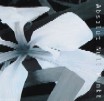
Six new (and fricticiously loud) live recordings from 2003 by K.K. Null (microphone, voice, guitar and more) and percussionist Seijiro Murayama starring as ANP, a format instigated way back over two decades ago. First of all – this is one of those rare recordings where earplugs may be effective as it is of a feral nature. Kaboom! Feedback mingles with a constant symbol; crushing drumming is mixed large, delivered with a knights-of-the-round-table enormity, full of gusto. It’s an industrial symphony by a duo that sounds more like the careening tower of Babylon. Metallic clanging rivets rip and bold booming power beats lead way to a dusty midway silence that leaves a meditational loophole that is only tinkered with by out jazz drumming. Climbing the stratosphere they chew off the ends and kodo drum their way through the guts and meat of the matter. A raging elephant enters tearing apart, in fear, everything in its beastly way. Pandemonium strikes as parts fly with pure panic in the house. These men have a sensitive side, decomposed at Null’s fingertips like the call of a sick gull. They squeeze cassette loops in a way that pokes fun at the hilarity of circus clowns twisting poodle balloons, and pull a tympani to end the joke, though this ain’t no one liner. Tubes used like an array of buzz-saws sadly yelping for WD40. They transform their instruments into back yard squeaks and squeals of old equipment and barn doors that haven’t seen the light of day in years. The fingernails have hit the chalkboard, the range is chaotically all over the place in this improvised mesh of industrial strength feedback. The prehistoric noise has now hit the streets to rip through the lines that divide us all.
::..:::…..:..::….:::::..:::..:::::::……:::…::.:::….::::..:..:::…::…….:::::
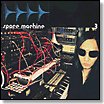
Yamazaki Maso (Masonna) pioneers his own sound.. Space Machine 3 is a Steve Reichian test of the substantive memory as it deeply and utterly repeats itself to no end. Semi-circular rhythms impart glowering dissonance. Maso’s synths and echo chamber do a number on the degenerative qualities of his solo recordings that use glitchy feedback and nightmarish pitch. It’s like a visit from the Avon lady from Hell, “a humpback whale on crack” as my roommate chimed in. The waves are high, and its vibration is dizzy and corrosive. The phone sounds permanently off the hook. Operator, operator??? Space: 1999 never sounded like this, but the illusion of space invaders is a welcome reminder that we should always shield our eyes from the threats of a solar eclipse…and Maso certainly reenacts this to a fault. His pixilated ammo is spellbinding with a flighty line of attack. The recording is split into “sides” A/B and C/D and the final forty minutes is a live piece performed in Osaka alongside Kawabata Makoto on reverb and guitar and Nakaya Kouichi playing more synths and Theremin. These boys like their bottomless echo effects. The Theremin makes my inner ear pop and sink. Synths flood in like helicopters in vertigo. The trio channels ancient Pink Floyd while tapping into the cavernous isolation of an overheated jumbo jet hangar.
::..:::…..:..::….:::::..:::..:::::::……:::…::.:::….::::..:..:::…::…….::::










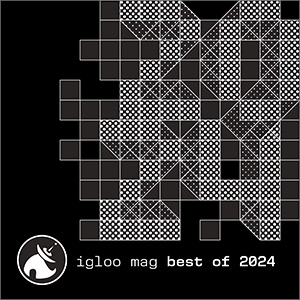

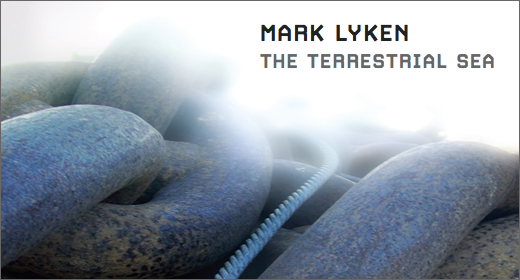

![exm :: Solar (Touched Music) — [concise]](https://igloomag.com/wp/wp-content/uploads/2025/03/exm-solar_feat-75x75.jpg)







